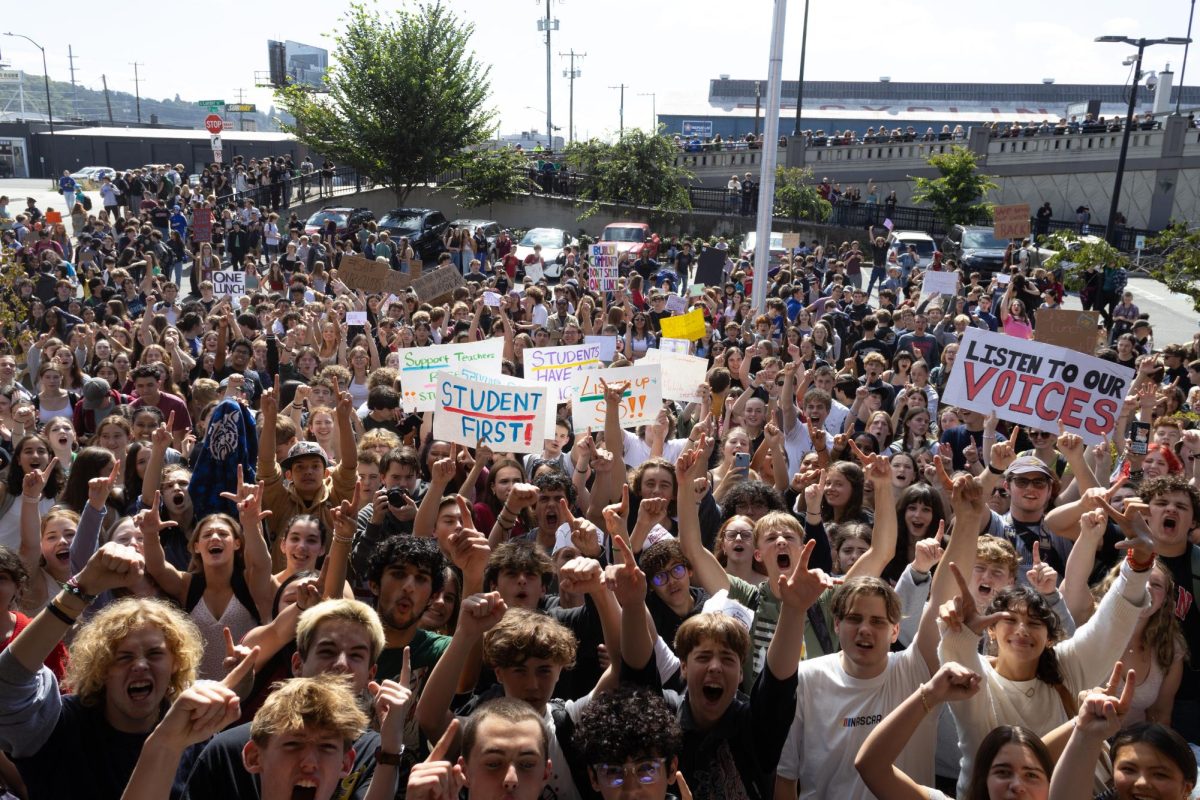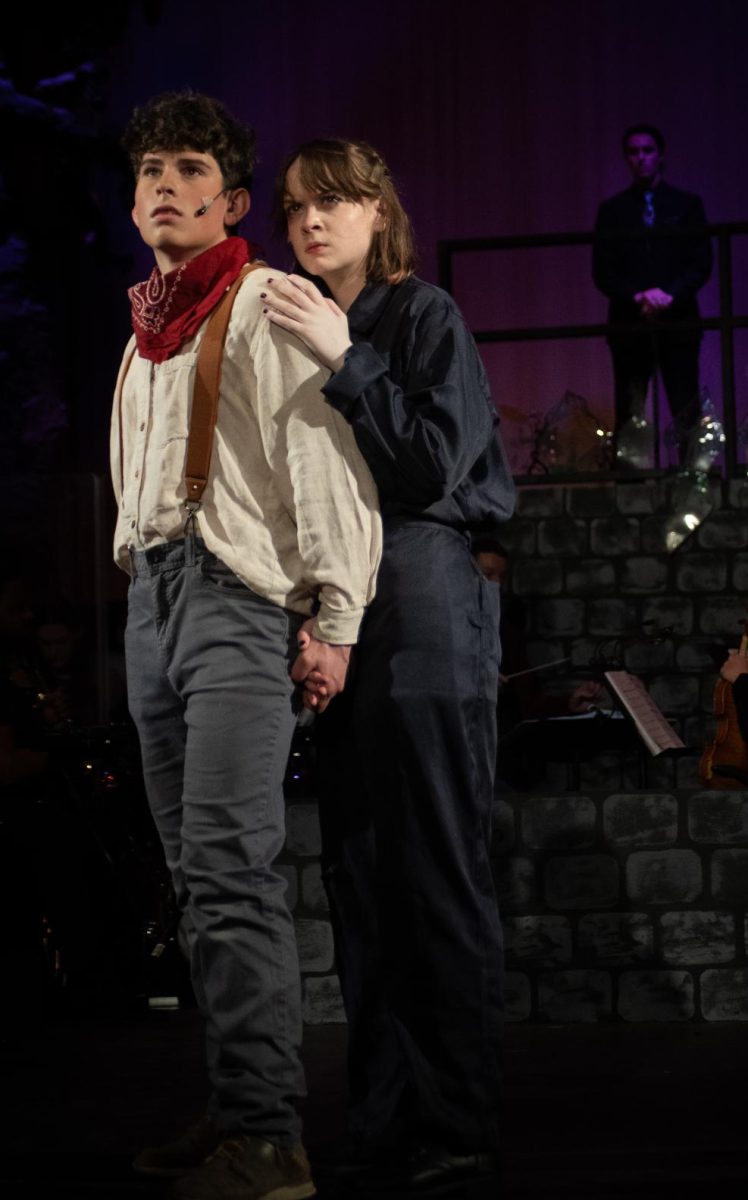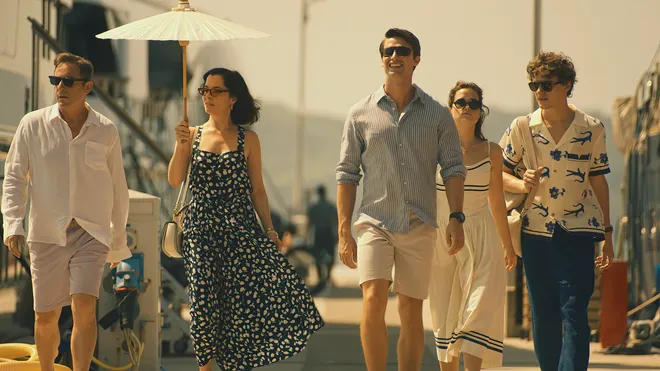The BHS theatrical community, including the Tech Theater class, has been preparing in the Black Box and auditorium since January to perform the musical “Hadestown” in a run from March 27 to April 6.
Every year, the school puts on a musical in the auditorium; this year, the show is “Hadestown,” by Annais Nin. Preparing for a musical is a lengthy process which requires many distinct skill sets, such as directing, acting and the Tech Theater class’s various construction responsibilities.
Directing
The Theater Director is Miller Shor, who holds the moving parts of the production together. While students work with many different teachers, including professionals (for example, costume students with professional costume designers), Shor guides many parts of the production.
“When directing a show like this, the most important part of my role is holding the whole picture of the show in my head,” Shor wrote in an email. “Since we have so many people working on different pieces of the show, it is imperative that I am able to see the whole picture and communicate with my team on the vision of the show.”
Shor guides the actors with developing their characters and building their technical skills, such as being on the right part of the stage at the right time, but gives the actors great creative independence.
“We give them the blocking and the technical skills they need to hit their marks and their notes, but how they decide to portray their characters is up to them,” Shor wrote. “We talk as a whole cast about the themes and messages we are hoping to portray with our show, and collaborate on a shared vision.”
Shor’s directing techniques mostly turn on physical theater (according to an SCFOfDance article, a type of performance which emphasizes “movement, gesture, and expression”). In more emotionally deep shows such as “Hadestown,” she also uses Stanislavski techniques, which an Acting Magazine article explains help actors understand their character’s goals and feelings and integrate them with their own lives.
“I pull from a wide range of theories when coaching actors, but mostly I focus on making sure they understand the story they are trying to tell and are making their choices intentionally,” Shor wrote. “The students I work with are smart and brave, so most of my work comes in supporting and fine-tuning the choices they are making.”
Acting
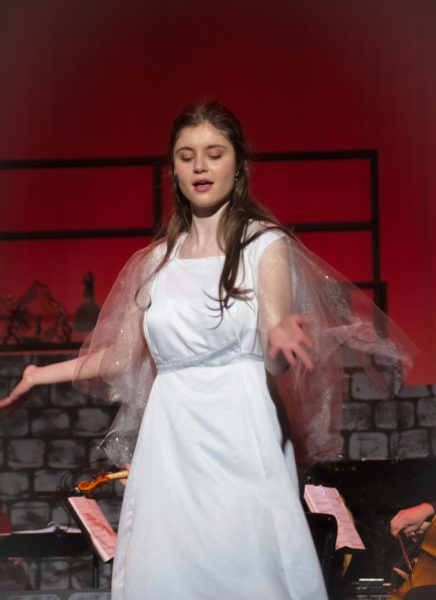
Rehearsals take place shortly after school, either on the stage to learn physical acting with Shor or professional choreographer Natalya Czosnyka or in the choir room to learn voice parts with Courtney Rowley, choir director and music department head. The actors also get scores and dance videos for practicing outside rehearsals.
“Probably for me [the hardest part is] in rehearsals putting together the song that I’ve just learned and the dance that I’ve just learned at the same time, because I can usually do on or the other but trying to do both when they’re brand new can be a challenge,” senior Corinne Iaccobucci said. “Like, ‘Oh, I’m remembering the dance stuff, but I’m forgetting my notes’, and then ‘oh, I sang the note right, but I have no idea what I just did in the dance.’”
Iaccobucci and senior Sam Ruzumna, who play extras, describe how they get into character by considering their character’s personality beyond what the script says about them and embodying their character’s feelings.
“It’s like if I was feeling that emotion, how would my body behave, so if I’m scared, maybe my shoulders come in; if I’m really excited, maybe my face is bright and my eyebrows are raised…” Iaccobucci said. “So then I feel it in my body and then that informs my acting decisions and often that will almost generate the emotion.”
Iaccobucci and Ruzumna consider the theater to be an opportunity to live out dangerous or painful situations and learn about what they’re like without actual danger, analogous to being in two spheres at once – the real world and the world of the show. For instance, they play factory workers and their friend and senior Ezra Hage plays Hades, their cruel and oppressive boss, giving them simultaneous emotions of trusting Ezra in the real world and playing characters who fear him.
“I’m not Corinne Iaccobucci as Worker [sic],” Iaccobucci said. “The worker is a different person who I am getting to embody.”
Tech Theater
Behind the scenes, keeping the show smooth requires people to make costumes, pick out props, tell the actors where to walk. The students in Shor’s Tech Theater class manage much of this backstage work.
According to Ollie Cain, assistant stage manager, students do almost all backstage work excepting some professional-handled lighting and costume design.
Cain mostly works on organization, such as by assisting with tecal cues and helping to prepare for Tech Week, an event about two weeks before the show’s opening when students work out tech elements like lighting and sound.
Cain says that Tech Week is one of the most stressful aspects of their job. “Just a lot of stuff to figure out overall,” they said.
A stitch crew composed of five students and an adult supervisor provides the costumes. The crew makes costumes from the theater’s stash of materials and retrieves costumes made for old shows.
“We have a bunch of old clothes,” crew head Jane Vos said. “We have a bunch of different fabrics and lace and buttons, pretty much anything you could use to make stuff with.”
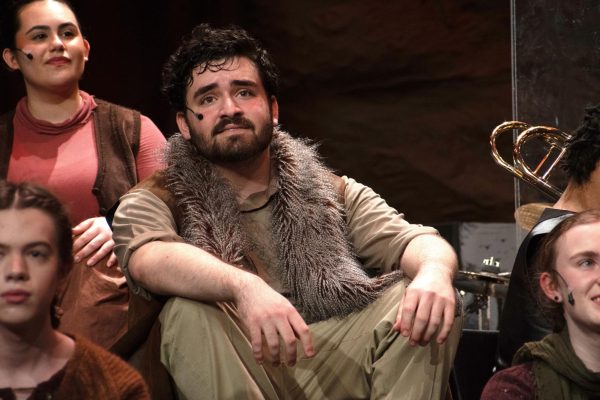
Considerations when making the costumes range from how the actors will move to what kind of aesthetic the costumes should have.
“A lot of the times we will have a big sit down,” Vos said. “We will have a meeting, and we’ll decide what kind of vibe we want for the costume, and what direction we’re going to go to, and make sure everything’s cohesive.”
Producing a show involves work outside the above categories, such as ushering and performing live music.




